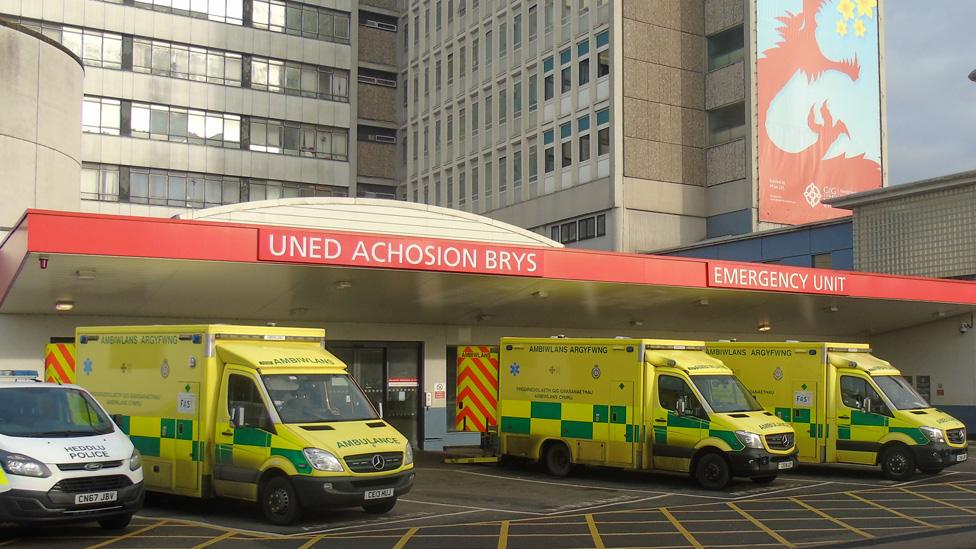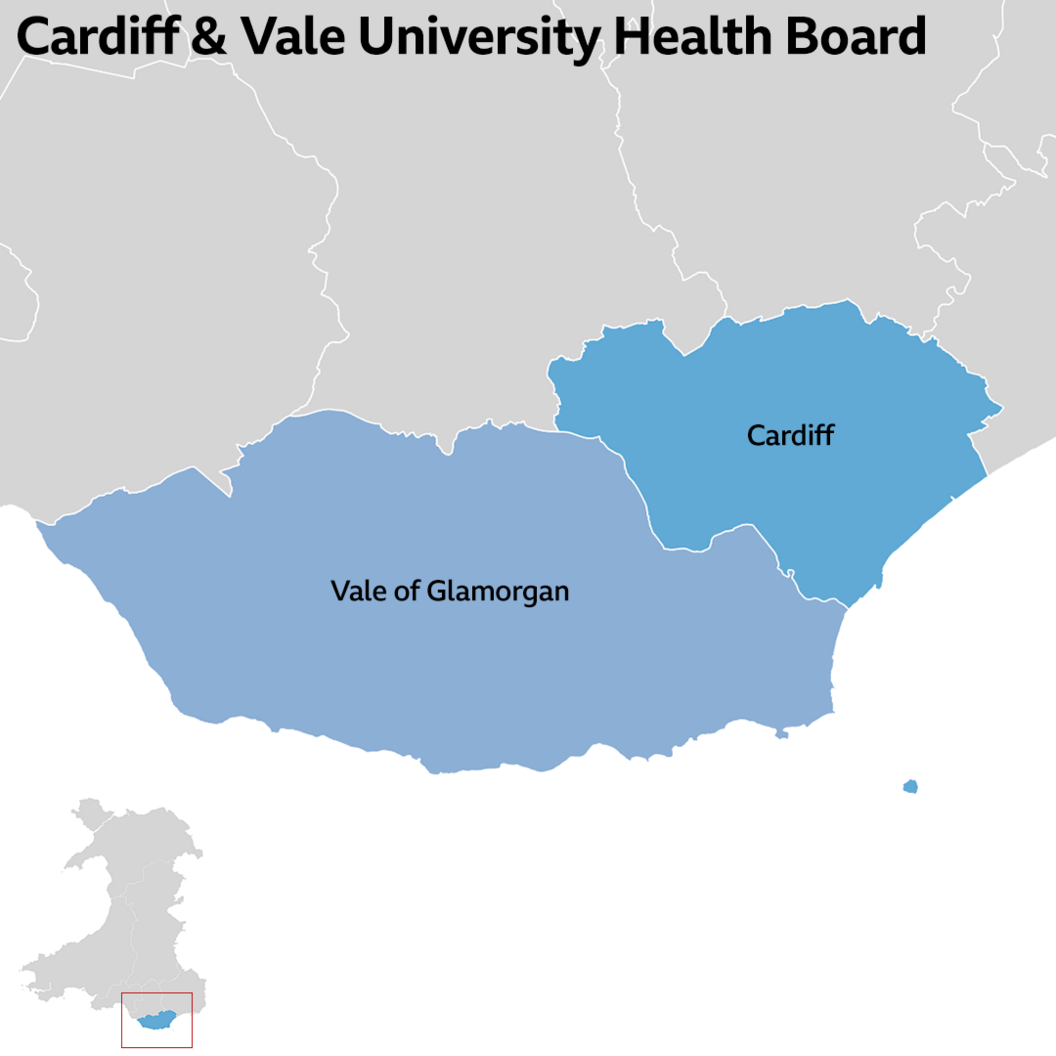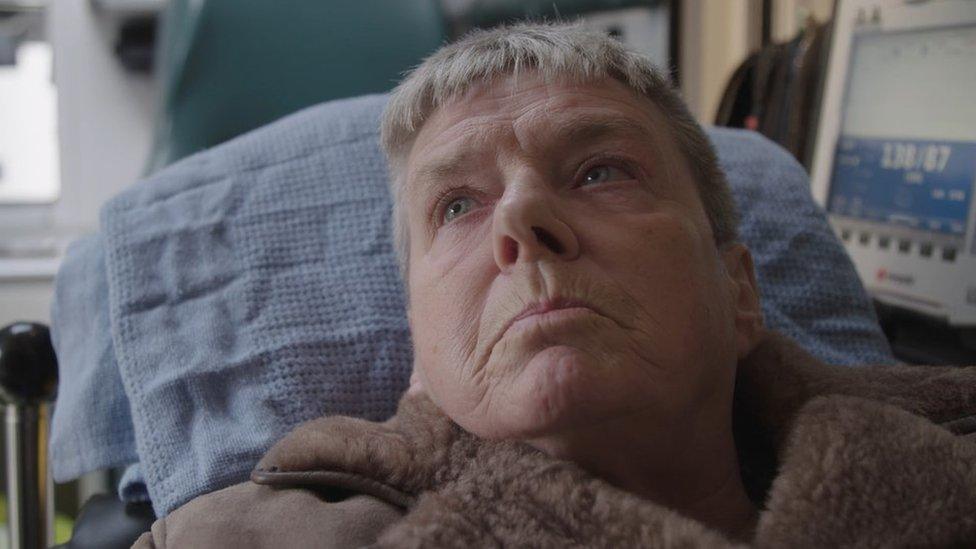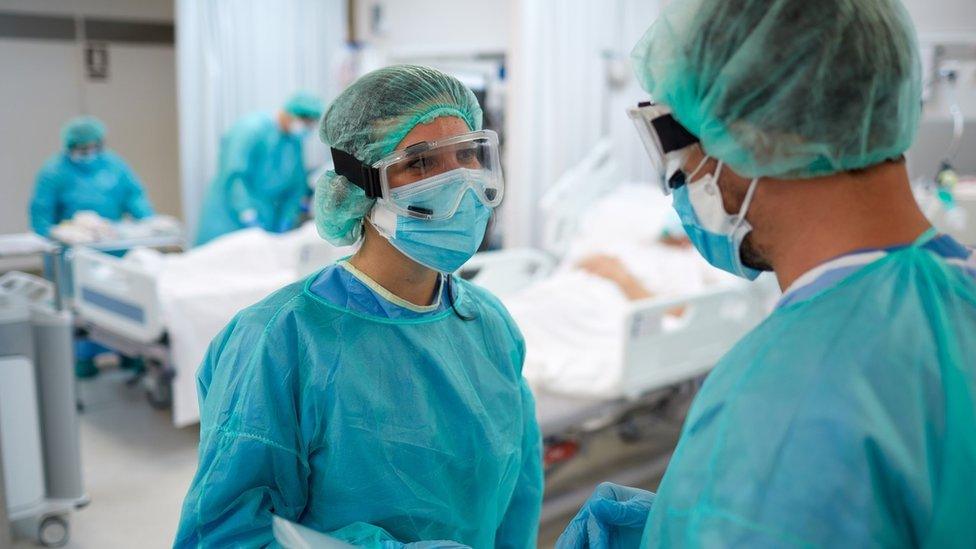Cardiff: UHW A&E patients' dignity compromised daily - report
- Published

The University Hospital of Wales is Wales' biggest hospital
The "dignity and safety" of patients at Wales' largest hospital was compromised on a daily basis, according to a Health Inspectorate Wales (HIW) report.
People were seen sitting on bins and on the floor of the emergency and assessment units at Cardiff's University Hospital of Wales (UHW).
Staff morale was found to be at an "all-time low", the report said.
Cardiff and Vale University Health board said it had created an action plan to tackle the issues raised.
It added the report made for "difficult reading".
The unannounced HIW inspection took place between 20 and 22 June and found "visibly dirty" sinks, stained commodes and clinical waste bins with rusty lids.
It also found wall-mounter hand sanitising containers were empty and medical sharps bins were filled to above capacity.
In the assessment unit, patients were nursed in high backed chairs which are not designed to be used for long periods, with one patient having to sleep using an arrangement of two chairs which did not recline.
Hospital staff had raised concerns about the equipment available to them, including not having the correct facilities to treat burned children correctly.
They told the HIW: "A really important part of [children's] management is cooling with water and decontamination.
"We do not have the facilities to do this and so have had to try and fit burned children in sinks or take them into the staff changing room to find a shower."

Cardiff and Vale health board covers two counties in south Wales
Staff also said their "basic needs" were not being met, with morale at an "all-time low".
Another told inspectors: "The dignity and safety of our patients has been compromised on an almost daily basis for a sustained period of time."
Fewer than half of staff said they were satisfied with the quality of care given to patients.
Inspectors also found medicines were not being stored properly and checks and maintenance of emergency equipment were not carried out correctly.
The inspector said: "The sepsis trolley was seen to be unlocked and intravenous antibiotics were identified as missing.
"In both the Emergency Unit and the Assessment Unit we were not assured effective processes were in place or being followed to prevent healthcare acquired infections.
"In addition, we were not assured that medicines were being stored safely or that checks of emergency equipment were regularly conducted to identify missing items required in the event of an emergency."
Katja Empson, deputy clinical board director for Cardiff and Vale University Health Board, said: "Our Emergency and Assessment Units have been under extreme pressure for some time and we fully accept the findings of the Healthcare Inspectorate Wales report.
"The teams have been working hard to make improvements to improve patient experience and have a robust strategy in place to address the issues and adapt services accordingly."
The health board said some of the issues outlined in the report were reflective of pressures faced across the NHS.
"It is important to recognise the team working tirelessly in challenging circumstances to deliver care to patients," she added.
"The board wants to reassure the team they do not consider this report as a reflection of the effort and commitment they continue to demonstrate."
- Published9 June 2022

- Published4 December 2021

- Published22 July 2021
